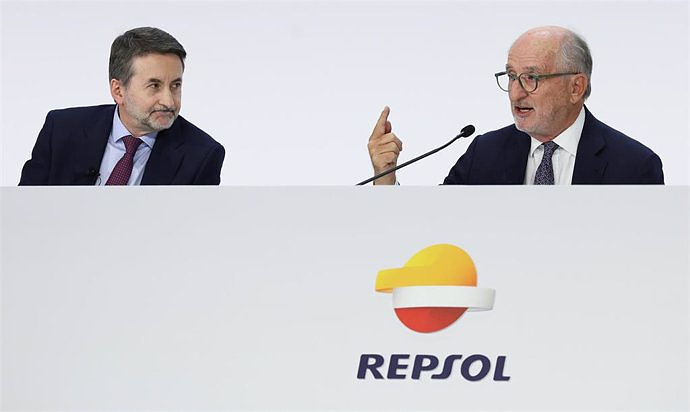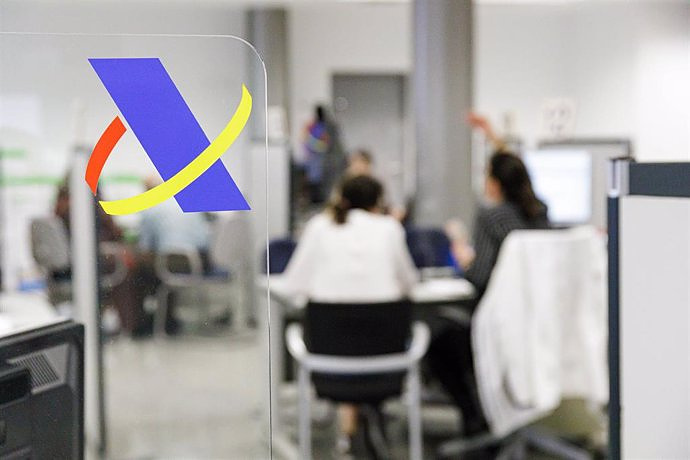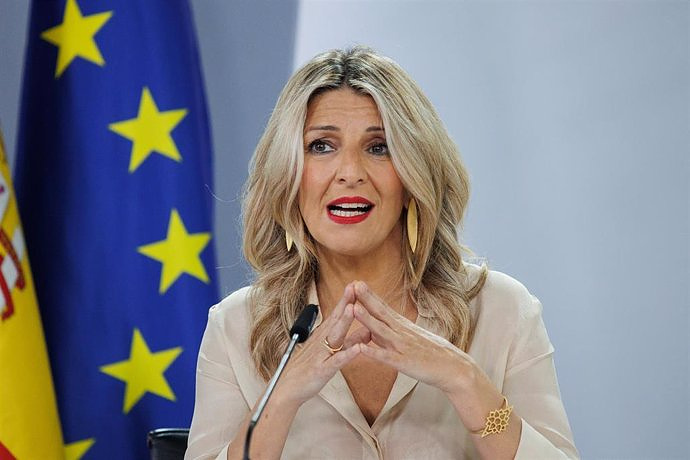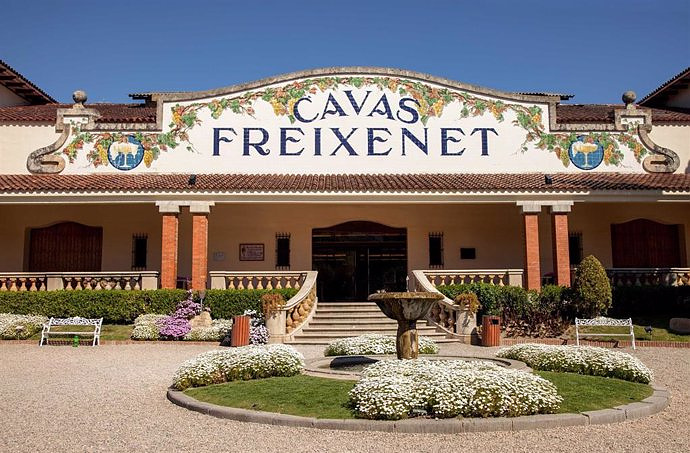It also seeks to strengthen judicial control of CNI activities, after the controversy over the 'Pegasus case'
MADRID, 11 Dic. (EUROPA PRESS) -
The PNV will take to the plenary session of Congress this Tuesday its reform of the law that regulates the National Intelligence Center (CNI) so that it is formally the president of the Government and not a minister who chooses the director of the espionage services and that they are thus linked politically. They also include measures to strengthen judicial control of the activities of espionage services.
The initiative was registered last May in connection with the controversy over the espionage of both pro-independence leaders and members of the Government with the 'Pegasus' program, an issue that cost the until then director of the CNI Paz Esteban, who she was replaced in the position by Esperanza Casteleiro, who had been acting as Secretary of State for Defense.
The first change to the law that the PNV will defend involves establishing that the proposal for the appointment of the director of the CNI does not come from a minister, but from the President of the Government himself, which would entail raising the political responsibility of the Intelligence services to the center itself. de la Moncloa for what might happen in the future.
As for the parliamentary control of the CNI, which is exercised by the Reserved Expenditures Commission of Congress, the PNV proposes that the deputies can be informed of the means used by the espionage services. Until now, not even the secrets commission can confirm that the CNI has 'Pegasus'.
In addition, the PNV proposes that the judicial control of the CNI's activities, which since the scandals of the 1990s has been entrusted to a Supreme Judge --in charge of giving prior authorization for a maximum period of three months, extendable--, be carried out carried out by three magistrates and that their decisions be adopted unanimously, taking into account that there is no second instance.
It also seeks that judges be informed of the means that the CNI will use for these activities, since it considers that they must assess the level of interference and the affectation of fundamental rights in order to apply the principle of proportionality.
Finally, the PNV proposes forcing the CNI to explain a posteriori the degree of execution of the authorized activities, a control that would allow knowing if it has been adjusted to the prior authorization and that would be very useful when deciding on possible extensions.

 Exploring Cardano: Inner Workings and Advantages of this Cryptocurrency
Exploring Cardano: Inner Workings and Advantages of this Cryptocurrency Seville.- Economy.- Innova.- STSA inaugurates its new painting and sealing hangar in San Pablo, for 18 million
Seville.- Economy.- Innova.- STSA inaugurates its new painting and sealing hangar in San Pablo, for 18 million Innova.- More than 300 volunteers join the Andalucía Compromiso Digital network in one month to facilitate access to ICT
Innova.- More than 300 volunteers join the Andalucía Compromiso Digital network in one month to facilitate access to ICT Innova.-AMP.- Ayesa acquires 51% of Sadiel, which will create new technological engineering products and expand markets
Innova.-AMP.- Ayesa acquires 51% of Sadiel, which will create new technological engineering products and expand markets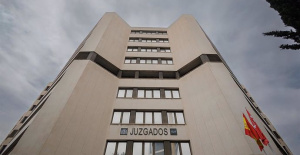 The judge who admitted the complaint of Clean Hands against Begoña Gómez interrogates two media officials this Friday
The judge who admitted the complaint of Clean Hands against Begoña Gómez interrogates two media officials this Friday Thousands of people in Palma demand to defend Catalan against the "involutionary policies" of "a fanatical minority"
Thousands of people in Palma demand to defend Catalan against the "involutionary policies" of "a fanatical minority" Menotti, maestro of Argentine football since the 1978 World Cup, dies
Menotti, maestro of Argentine football since the 1978 World Cup, dies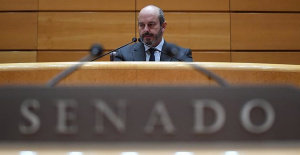 The amnesty faces its final stretch in the Senate with the question of whether it will be voted this week or after the Catalan elections.
The amnesty faces its final stretch in the Senate with the question of whether it will be voted this week or after the Catalan elections. How Blockchain in being used to shape the future
How Blockchain in being used to shape the future Not just BTC and ETH: Here Are Some More Interesting Coins Worth Focusing on
Not just BTC and ETH: Here Are Some More Interesting Coins Worth Focusing on A sensor system obtains the fingerprint of essential oils and detects if they have been adulterated
A sensor system obtains the fingerprint of essential oils and detects if they have been adulterated Faraday UPV presents the 'Origin' rocket to exceed 10 km of flight: "It is the beginning of the journey to space"
Faraday UPV presents the 'Origin' rocket to exceed 10 km of flight: "It is the beginning of the journey to space" The Generalitat calls for aid worth 4 million to promote innovation projects in municipalities
The Generalitat calls for aid worth 4 million to promote innovation projects in municipalities UPV students design an app that helps improve the ventilation of homes in the face of high temperatures
UPV students design an app that helps improve the ventilation of homes in the face of high temperatures A million people demonstrate in France against Macron's pension reform
A million people demonstrate in France against Macron's pension reform Russia launches several missiles against "critical infrastructure" in the city of Zaporizhia
Russia launches several missiles against "critical infrastructure" in the city of Zaporizhia A "procession" remembers the dead of the Calabria shipwreck as bodies continue to wash up on the shore
A "procession" remembers the dead of the Calabria shipwreck as bodies continue to wash up on the shore Prison sentences handed down for three prominent Hong Kong pro-democracy activists
Prison sentences handed down for three prominent Hong Kong pro-democracy activists ETH continues to leave trading platforms, Ethereum balance on exchanges lowest in 3 years
ETH continues to leave trading platforms, Ethereum balance on exchanges lowest in 3 years Investors invest $450 million in Consensys, Ethereum incubator now valued at $7 billion
Investors invest $450 million in Consensys, Ethereum incubator now valued at $7 billion Alchemy Integrates Ethereum L2 Product Starknet to Enhance Web3 Scalability at a Price 100x Lower Than L1 Fees
Alchemy Integrates Ethereum L2 Product Starknet to Enhance Web3 Scalability at a Price 100x Lower Than L1 Fees Mining Report: Bitcoin's Electricity Consumption Declines by 25% in Q1 2022
Mining Report: Bitcoin's Electricity Consumption Declines by 25% in Q1 2022 Oil-to-Bitcoin Mining Firm Crusoe Energy Systems Raised $505 Million
Oil-to-Bitcoin Mining Firm Crusoe Energy Systems Raised $505 Million Microbt reveals the latest Bitcoin mining rigs -- Machines produce up to 126 TH/s with custom 5nm chip design
Microbt reveals the latest Bitcoin mining rigs -- Machines produce up to 126 TH/s with custom 5nm chip design Bitcoin's Mining Difficulty Hits a Lifetime High, With More Than 90% of BTC Supply Issued
Bitcoin's Mining Difficulty Hits a Lifetime High, With More Than 90% of BTC Supply Issued The Biggest Movers are Near, EOS, and RUNE during Friday's Selloff
The Biggest Movers are Near, EOS, and RUNE during Friday's Selloff Global Markets Spooked by a Hawkish Fed and Covid, Stocks and Crypto Gain After Musk Buys Twitter
Global Markets Spooked by a Hawkish Fed and Covid, Stocks and Crypto Gain After Musk Buys Twitter Bitso to offset carbon emissions from the Trading Platform's ERC20, ETH, and BTC Transactions
Bitso to offset carbon emissions from the Trading Platform's ERC20, ETH, and BTC Transactions Draftkings Announces 2022 College Hoops NFT Selection for March Madness
Draftkings Announces 2022 College Hoops NFT Selection for March Madness
